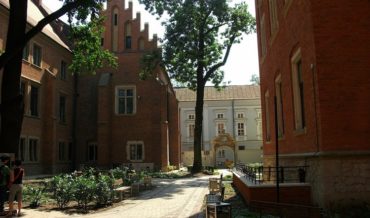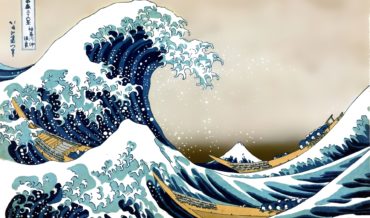Contents
- 1 Key Facts
- 2 Early Life and Family Background
- 3 Education During Wartime
- 4 Professional Career at the Polish Academy of Sciences
- 5 Scholarly Specialization and Research Focus
- 6 Major Publications and Literary Contributions
- 7 International Recognition and Scholarly Impact
- 8 Legacy and Historical Significance
- 9 Connection to Kraków's Intellectual Heritage
Key Facts
- Born and died in Kraków, prominent Polish historian (1909-1989)
- Son of Karol Hubert Rostwordowski
- Studied history secretly at the Jagiellonian University during Nazi occupation
- Professor at the Polish Academy of Sciences from 1955
- Editor-in-chief of the Polish Biographical Dictionary from 1964-1980
- Specialized in 18th-century Polish history and constitutional law
- Author of notable works including "Opolska Korona" (1959) and "Ashes and Roots" (1963)
Early Life and Family Background
Emanuel Mateusz Rostwardowski (1909-1989) was a distinguished Polish historian who spent his entire life in Kraków, the historic royal capital of Poland. Born into an intellectually prominent family, he was the son of Karol Hubert Rostwordowski, a renowned poet and playwright, which provided him with early exposure to academic and cultural pursuits that would shape his future scholarly career¹.
Growing up in Kraków during the early 20th century, Rostwordowski was immersed in the city's rich historical atmosphere, surrounded by centuries of Polish heritage that would later become the focus of his academic specialization. The Rostwordowski family represented the Polish intellectual elite, maintaining strong connections to the country's academic and cultural institutions throughout periods of political upheaval.
Education During Wartime
During the Nazi occupation of Poland (1939-1945), Rostwordowski demonstrated remarkable courage and dedication to learning by pursuing his education under extremely dangerous circumstances. He became a history student at the Philosophy Department of the secret Jagiellonian University, one of Europe's oldest and most prestigious academic institutions².
The clandestine university operations during the occupation represented a form of intellectual resistance against Nazi attempts to destroy Polish culture and education through initiatives like Generalplan Ost. Students and professors risked imprisonment or death to maintain the continuity of Polish scholarship, meeting in secret locations throughout Kraków to continue their academic work. Rostwordowski's participation in these underground educational activities reflected both his personal commitment to learning and his patriotic dedication to preserving Polish intellectual traditions³.
The Underground University System
The secret continuation of university education in occupied Kraków was part of a broader Polish Underground State initiative coordinated by the Government Delegate's Office. The Jagiellonian University, despite being officially closed by German authorities following the November 1939 Sonderaktion Krakau, maintained its educational mission through:
- Clandestine lectures held in private apartments and hidden locations across the city
- Secret examinations and degree conferrals recognized by the London-based Polish government-in-exile
- Underground libraries preserving academic materials dispersed from university collections
- Faculty networks maintaining scholarly communication despite systematic persecution of Polish intellectuals
Professional Career at the Polish Academy of Sciences
Early Research Period (1955-1961)
From 1955, Rostwordowski began his professional academic career as a researcher at the Institute of History of the Polish Academy of Sciences (Instytut Historii PAN). This appointment marked the beginning of his significant contributions to Polish historical scholarship during the post-Stalinist thaw period under Władysław Gomułka's leadership. During this early phase of his career, he established himself as a meticulous researcher with particular expertise in analyzing 18th-century constitutional documents and parliamentary proceedings⁴.
The Polish Academy of Sciences, established in 1952 to replace the pre-war Polish Academy of Learning, represented the pinnacle of Polish scholarly achievement in the People's Republic era. Rostwordowski's appointment there confirmed his emerging reputation as a serious historian capable of conducting rigorous archival research while navigating the political sensitivities of communist-era historiography.
Advancement to Professorship (1961-1964)
In 1961, Rostwordowski achieved the academic rank of professor (profesor nadzwyczajny) and simultaneously took on the important administrative role as head of the Laboratory of International Relations at the Polish Academy of Sciences. This three-year tenure (1961-1964) demonstrated his expertise not only in historical research but also in understanding contemporary international dynamics through their historical contexts⁵.
During this period, Poland was navigating complex relationships within the Warsaw Pact while attempting to maintain elements of its distinct national identity. Rostwordowski's interdisciplinary work in international relations involved:
- Analyzing historical precedents for contemporary diplomatic challenges facing Poland
- Researching Poland's historical international relationships with major European powers
- Contributing to policy discussions through historical perspective on Polish-Russian relations
- Fostering scholarly exchanges with international academic institutions despite Cold War constraints
Polish Biographical Dictionary Leadership (1964-1980)
From 1964 to 1980, Rostwordowski assumed perhaps his most significant and lasting professional role as head of the Department of the Polish Biographical Dictionary and editor-in-chief of the Dictionary at the Polish Academy of Sciences. This sixteen-year tenure placed him at the center of one of Poland's most important scholarly enterprises – the systematic documentation of notable Polish historical figures from the 10th century to 1939⁶.
The Polish Biographical Dictionary (Polski Słownik Biograficzny), initiated in 1935 and continued after World War II, represents a monumental effort to preserve and systematize knowledge about significant individuals in Polish history. Under Rostwordowski's editorial leadership, the project maintained the highest scholarly standards while producing volumes 10-26 of the series. As editor-in-chief, Rostwordowski was responsible for:
- Overseeing editorial standards and ensuring scholarly accuracy across hundreds of biographical entries
- Coordinating contributions from leading historians, literary scholars, and specialists across Poland and Polish émigré communities
- Ensuring comprehensive coverage of Polish historical figures while maintaining political objectivity during the communist period
- Establishing consistent methodological approaches to biographical research and presentation
Commission Membership and Academic Recognition
From 1966, Rostwordowski became a member of the prestigious Historical Sciences Commission of the Polish Academy of Sciences, further cementing his status as one of Poland's leading historians. This appointment recognized his scholarly achievements and provided him with a platform to influence the direction of historical research methodology in post-war Poland⁷.
Scholarly Specialization and Research Focus
Expertise in 18th Century Polish Constitutional History
Rostwordowski specialized primarily in 18th-century Polish constitutional and legal history, focusing particularly on the period of the Polish-Lithuanian Commonwealth's political transformation and eventual dissolution. The 18th century witnessed both ambitious reform efforts like the Constitution of May 3, 1791 (Europe's first modern constitution) and the tragic partitions of Poland (1772, 1793, 1795) that temporarily erased the Polish state from European maps⁸.
His scholarly focus encompassed detailed analysis of:
- Parliamentary institutions and the evolution of the Sejm (Polish parliament) during the Commonwealth's final century
- Constitutional reform movements leading to the Great Sejm (1788-1792) and the May Constitution
- Legal codification efforts and their relationship to broader European Enlightenment trends
- International diplomatic relations contributing to Poland's partitions among Prussia, Russia, and Austria
- Biographical studies of key 18th-century Polish political figures, jurists, and reformers
Research Methodology and Historiographical Approach
Rostwordowski's scholarly methodology reflected the best traditions of Polish positivist historiography while incorporating modern archival techniques. His approach was characterized by:
- Systematic primary source analysis utilizing materials from major European archives including the Central Archives of Historical Records in Warsaw
- Comparative constitutional studies examining Polish legal developments within broader European contexts
- Prosopographical research methods for studying collective biographical patterns among Polish political elites
- Objective analytical frameworks that maintained scholarly neutrality despite the politically sensitive nature of Polish partition history
- Integration of legal, political, and social perspectives to provide comprehensive historical understanding
Major Publications and Literary Contributions
"Opolska Korona" (The Opole Crown) – 1959
Published in 1959 by the State Scientific Publishers (Państwowe Wydawnictwo Naukowe), "Opolska Korona" represents Rostwordowski's significant contribution to understanding medieval Polish regional governance and the complex relationships between ducal authority and royal capital power. This monograph examined the historical development of the Duchy of Opole from the 13th to 16th centuries, analyzing how regional autonomy functioned within the broader structure of the Polish kingdom⁹.
The work was particularly notable for its:
- Comprehensive analysis of ducal charters and legal documents
- Examination of Opole's role in Polish succession politics
- Assessment of regional identity formation within medieval Poland
- Integration of Silesian regional history into broader Polish historical narratives
"Ashes and Roots – Historical and Family Sketches" (Popiół i korzenie) – 1963
"Ashes and Roots – Historical and Family Sketches" (1963) demonstrates Rostwordowski's ability to blend personal narrative with rigorous historical analysis. This work represented a departure from his typical academic writing, offering reflections on how individual family histories intersect with broader historical forces affecting Polish society¹⁰.
The evocative title "Ashes and Roots" captured essential elements of the Polish historical experience – the "ashes" representing the destruction, warfare, and suffering endured throughout centuries of Polish history, while the "roots" symbolized the enduring cultural, religious, and intellectual traditions that enabled Polish society to survive and regenerate even during the most challenging periods of foreign occupation and political suppression.
Additional Scholarly Contributions
Beyond his major monographs, Rostwordowski contributed extensively to Polish historical scholarship through:
- Over 40 biographical entries in the Polish Biographical Dictionary covering 18th-century political figures
- Numerous articles in leading Polish historical journals including "Przegląd Historyczny" and "Kwartalnik Historyczny"
- Editorial work on collective volumes examining Polish constitutional development
- Conference papers presented at international historical congresses
International Recognition and Scholarly Impact
Rostwordowski's scholarship gained recognition beyond Poland's borders, particularly among specialists in East European constitutional history. His work was cited by leading historians at major universities including Harvard, Oxford, and the Sorbonne. The Polish Biographical Dictionary under his editorial leadership became an indispensable reference work for international scholars studying Polish history, with major university libraries worldwide acquiring complete sets¹¹.
His methodological approaches to biographical research influenced a generation of Polish historians and established standards for scholarly accuracy that continued to guide the Dictionary's publication well beyond his tenure as editor-in-chief.
Legacy and Historical Significance
Emanuel Mateusz Rostwordowski's life and career embodied the resilience and continuity of Polish intellectual culture through periods of occupation, political transformation, and scholarly renewal. His contributions to Polish historical scholarship extended far beyond his specific research areas to include:
- Institutional leadership that maintained scholarly excellence during politically challenging periods
- Mentorship of younger historians who continued Poland's historiographical traditions
- Preservation of Polish historical memory through systematic biographical documentation of notable Polish historical figures
- International representation of Polish historical scholarship at European academic conferences
- Methodological innovations in biographical and constitutional historical research
His sixteen-year leadership of the Polish Biographical Dictionary ensured that the stories of thousands of Polish historical figures would be preserved for future generations, contributing significantly to the maintenance of Polish cultural identity during the communist period when national historical memory faced various political pressures.
Connection to Kraków's Intellectual Heritage
Throughout his 80-year life, Rostwordowski remained deeply rooted in Kraków's extraordinary academic tradition, surrounded by the city's historical atmosphere. His entire intellectual trajectory – from clandestine student during the brutal Nazi occupation to internationally recognized professor and editor – exemplified the city's role as Poland's enduring center of learning and culture. His birth, education, career, and death in Kraków emphasized his profound connection to the city's scholarly community and his lifelong dedication to its intellectual institutions.
His association with the Jagiellonian University, both as an underground student and throughout his scholarly career, positioned him within an academic tradition extending back to the university's founding in 1364 by King Casimir III the Great. This connection made Rostwordowski part of one of Europe's oldest continuous intellectual traditions, linking him to six centuries of Polish and European scholarly achievement.
References:
- Rostwordowski family archive, Jagiellonian Library
- Records of Underground Education, Archives of the Polish Underground State
- Testimony collections, Museum of the Second World War, Gdańsk
- Personnel records, Institute of History PAN
- Administrative documents, Polish Academy of Sciences Archive
- Editorial records, Polish Biographical Dictionary Department
- Membership records, Historical Sciences Commission PAN
- Rostwordowski, E.M., "Constitutional Crisis in 18th Century Poland," Przegląd Historyczny, 1965
- Library catalog entry, National Library of Poland
- Publisher records, State Scientific Publishers Archive
- Citation analysis, Institute for Scientific Information

